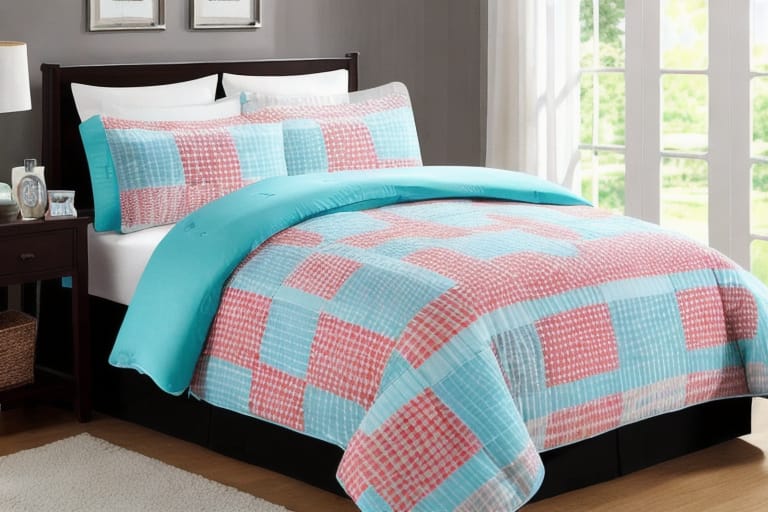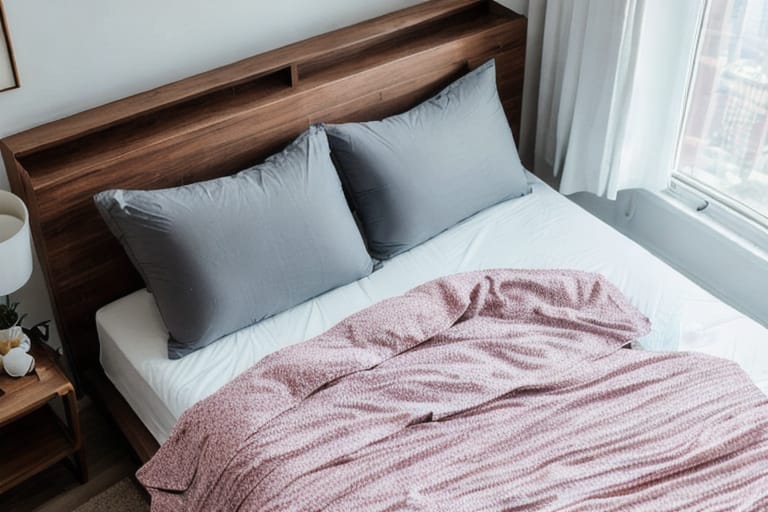Have you ever wondered where the fluffy down inside your duvet or pillow comes from? Down is the layer of fine feathers closest to a bird’s skin that provides warmth and insulation. It’s prized in bedding for its unbeatable softness and ability to trap heat. But the comfort down brings comes at an ethical cost.

Unethical practices like live-plucking and force-feeding have given the down industry a bad reputation when it comes to animal welfare. However, more and more down suppliers are prioritizing ethical sourcing.
This beginner’s guide will teach you all about the controversy around down production, what “ethical down” really means, and how to find cruelty-free bedding you can sleep soundly on.
What Makes Down So Controversial?
Down production has come under fire for inhumane treatment of geese and ducks. Organizations like PETA have uncovered cruel practices:
- Live-plucking – ripping feathers out of live birds causes injury and distress. Plucked birds may be recycled into foie gras production.
- Force-feeding – overfeeding birds to enlarge their livers for foie gras. This painful practice is banned in many countries.
- Slaughter – most down is a by-product of the meat industry. There are ethical concerns over the way birds are housed, transported, and slaughtered.
The complexity of global supply chains also makes ethical sourcing tricky. Brands often don’t know exactly where their down comes from or how birds were treated.
Why Ethical Sourcing Matters
The controversy prompted new industry regulations like the Responsible Down Standard (RDS) to ensure animal welfare.
As consumer awareness grows, brands are also responding to demand for transparency and traceability. Shopping mindfully can encourage more ethical practices.
Sourcing down properly promotes:**
- Health and safety of birds
- Natural behaviors like roosting and foraging
- Low stress methods for transport and slaughter
There are also environmental benefits to sourcing down responsibly and seeking alternatives like recycled down.
Certifying Ethical Down Sources
Various independent organizations now audit and certify down:
- Responsible Down Standard (RDS) – most recognized certification ensuring animal welfare and traceability. RDS down must be sourced using humane practices without live-plucking or force-feeding.
- Global Traceable Down Standard – tracks down from farm to final product using DNA tagging and 3rd party auditing.
- Downpass – audits for animal cruelty risks in supply chains. Certified down is ethically sourced as a by-product.
Recycled down also skips supply chain concerns. Brands like Re:Down rescue down and feathers from old bedding headed for landfills. The recycled down gets cleaned and sterilized for reuse.
Look for credibility markers like independent auditing and site checks for full supply chain visibility. Trustworthy certifications provide the proof to back ethical sourcing claims.
Ethical Alternatives to Goose and Duck Down
If you want bedding totally free of animal products, down alternative fills offer an ethical solution.
Synthetic options like PrimaLoft mimic down using polyester or rayon:
- Keeps insulating ability even when wet
- Hypoallergenic and washable
- Affordable compared to down
- Not biodegradable
Natural plant fibers like eucalyptus and banana fiber are also emerging:
- Renewable and compostable resource
- Limited supply and production
- Properties and quality vary
A pricier but renewable choice is eiderdown collected from eider duck nests without harming birds. But small supply and restrictions protect the wild eider population from overharvesting.
| Fill Material | Price | Animal Free | Biodegradable | Supply |
|---|---|---|---|---|
| Goose Down | $$$ | No | Yes | Abundant |
| Synthetic | $ | Yes | No | Abundant |
| Plant Fibers | $$ | Yes | Yes | Limited |
| Eiderdown | $$$$ | Yes* | Yes | Scarce |

These alternatives show promise but usually trade performance, price, or scalability compared to regular or ethical down.
How to Shop Responsibly
You can make a difference by supporting ethical brands. But misleading marketing makes it hard for consumers to recognize truly humane products.
Follow these tips when evaluating claims:
Check Certifications
Credible logos like RDS verify production audits. Don’t just take a company’s word for it.
Validate Supply Chains
Brands should disclose down sources and have supplier monitoring in place. Traceability ensures quality control.
Learn Terminology
Understand key phrases like “responsibly sourced” and “animal welfare” approved.
Compare Products
Seek out compliant brands like Allied Feather & Down instead of vague “ethical” claims.
Consult Reports
Organizations like FOUR PAWS annually rank companies on sourcing transparency.
Shop mindfully and reach out to brands with any supply chain concerns. Support companies making effort to improve standards industry-wide.
Top Ethical Down Brands
More consumers demand ethically sourced down, encouraging vendors to clean up their supply chains.
Here are some leading sources making animal welfare commitments:
| Brand | Sourcing Report Card | Price Range |
|---|---|---|
| Allied Feather & Down | A+ | $$$ |
| DownLinens | A | $$ |
| Cuddledown | A- | $$$ |
Allied received top marks from FOUR PAWS for responsible practice. DownLinens ethically sources 90% of materials including RDS-certified down. And Cuddledown traces over 75% of supply chain while continually improving standards.
These premium brands pass on higher costs but make lasting investments in animal welfare and sustainability. Their commitment adds value for conscious consumers.
The Bottom Line on Ethical Down
The down inside your bedding probably passed through a murky supply chain. Seeking ethically-sourced options encourages the industry to clean up its act.
- Check certifications like Responsible Down Standard
- Validate supply chain transparency with trustworthy brands
- Support companies investing in animal welfare
- Purchase recycled down or alternative fills if avoiding animal products altogether
While pricier, shopping mindfully promotes sustainable, humane practices from start to finish. And that’s worth resting easy over!
What steps do you take to make socially conscious purchases? Share your thoughts below!
FAQs
What exactly is “live-plucking”?
Live-plucking refers to the unethical practice of pulling out down and feathers from ducks and geese while they are still alive. This causes extreme distress, injury, and even death. Live-plucking allows the birds to regrow feathers repeatedly to increase yields.
Is “force-feeding” banned in the down industry?
Force-feeding geese and ducks to produce foie gras is now banned in the UK, Germany, Italy, and many other European countries. However, force-fed birds still enter global supply chains. Ethical certifications like Responsible Down Standard explicitly forbid force-feeding.
Why is down so much more expensive than synthetic alternatives?
Natural down like goose down commands higher prices than synthetic fills due to limited supply. Ethically sourced down also incurs added costs for extensive auditing and supply chain monitoring under standards like Global Traceable Down Standard (GTDS). These premium prices support sustainable practices.
What kind of certifications should I look for?
Credible animal welfare certifications to seek out include Responsible Down Standard (RDS), Textile Exchange, and Downpass standard. RDS is the leading global certification that upholds strict standards at every link along the supply chain. Traceability schemes like Global Traceable Down Standard also verify ethical sourcing.
How is recycled down different from virgin down?
Recycled down comes from reusing discarded bedding materials rather than newly farmed down. It goes through intensive cleaning and sterilization to quality check fill power. Recycled down is more sustainable but can show slightly more variance batch to batch.
Do cruelty-free regulations also apply to down alternatives?
Synthetic or plant-based down alternatives still need to meet standards like Oeko-Tex certification to ensure sustainability practices and safe processing methods without harmful chemicals. Responsible manufacturing without animal inputs is key across all bedding materials.
Does higher fill power guarantee better ethical sourcing?
Higher fill power signifies more loft and insulation value. But even 800+ fill down could still come from questionable animal sources. Responsible production matters more than fill ratings alone. Certifications tying fill power to animal welfare indicate the highest quality caliber down.








